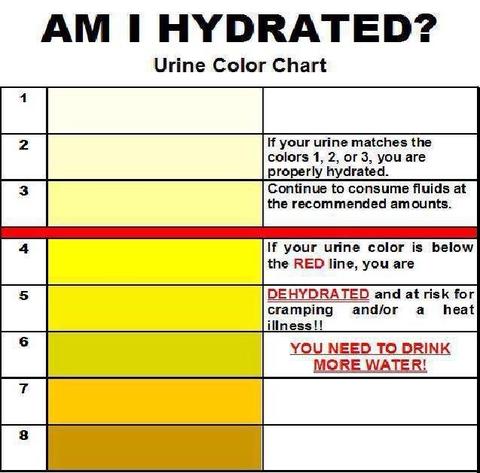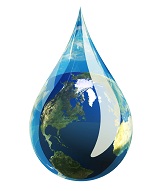 |
The Importance of Proper Hydration

Next to air, water is the element most necessary for survival. A normal adult is 60 to 70 percent water. We can go without food for almost two months, but without water only a few days. Yet most people have no idea how much water they should drink. In fact, many live in a dehydrated state.
Mild Dehydration
Due to the fact that a person's kidneys will start to conserve water, their urine will become concentrated and will become amber in color instead of the usual light-tinted yellow color. With mild dehydration a person's thirst may become extreme, and their face can become flushed. A person's skin can become dry, as well as their lips and mucous membranes. They may also experience constipation or bloating.
Moderate Dehydration
As a person become increasingly dehydrated, the symptoms they experience change and worsen in some ways. Not only will they experience fatigue, headache, and drowsiness – they may become impatient and very irritable. The person's skin can become, 'doughy,' and fail to bounce back when it is pinched. Their eyes can appear sunken and the person can experience up to a 30% decline in their physical labor capacity, as well as muscle cramping.
Worsening moderate dehydration finds people experiencing cold hands and feet, as well as difficulties with concentrating. A person may also experience:
- Fainting
- Dizziness
- A lack of tears in crying infants
- Major reduction in urine production
Once a person has reached the stage of moderate dehydration, their risk of becoming severely dehydrated increases dramatically.
Severe Dehydration
Severe dehydration brings with it a number of potentially severe symptoms. The symptoms may comprise medical emergencies in some instances and require prompt medical attention. The symptoms of severe dehydration can include the following:
- Seizures
- Confusion
- Rapid breathing
- Coma and death
- Low blood pressure
- Vomiting and/or diarrhea
- A weak, irregular heart beat
- Shock, collapse, or unconsciousness
- Failure of the body's heat regulation systems
To prevent dehydration, medical experts recommend that people drink at least 6-8 glasses of water every single day. Nutritionists suggest the best way to fight the heat and cold is to drink plenty of water.
To determine your baseline range for water requirement, use the following formula:
Low end of range= Body weight (lbs) x 0.5 = (ounces of fluid/day)
High end of range=Body weight (lbs) x 1 = (ounces of fluid/day)
For example, if you weigh 150 pounds, your approximate water requirement will be between 75 and 150 ounces each day.
